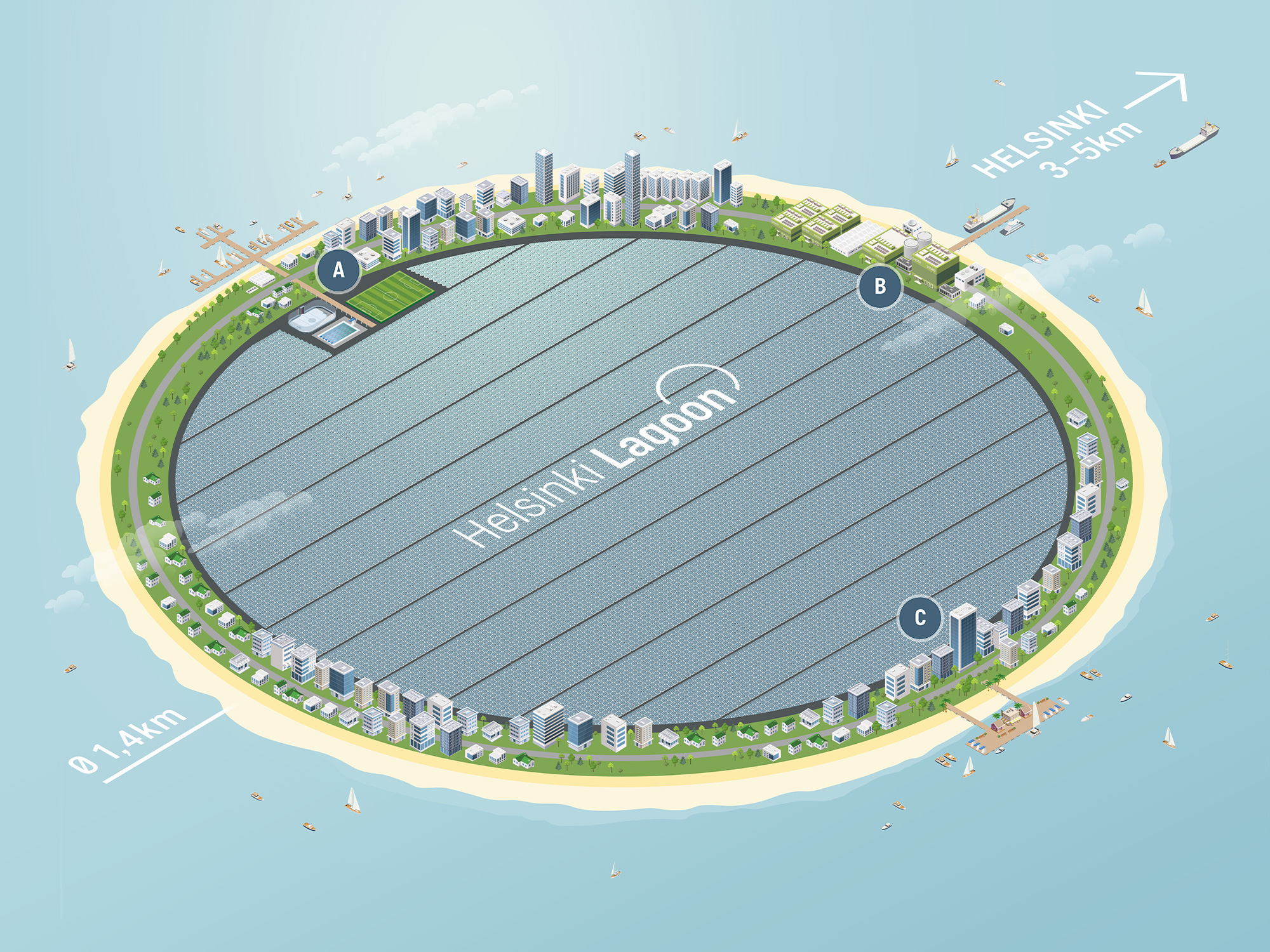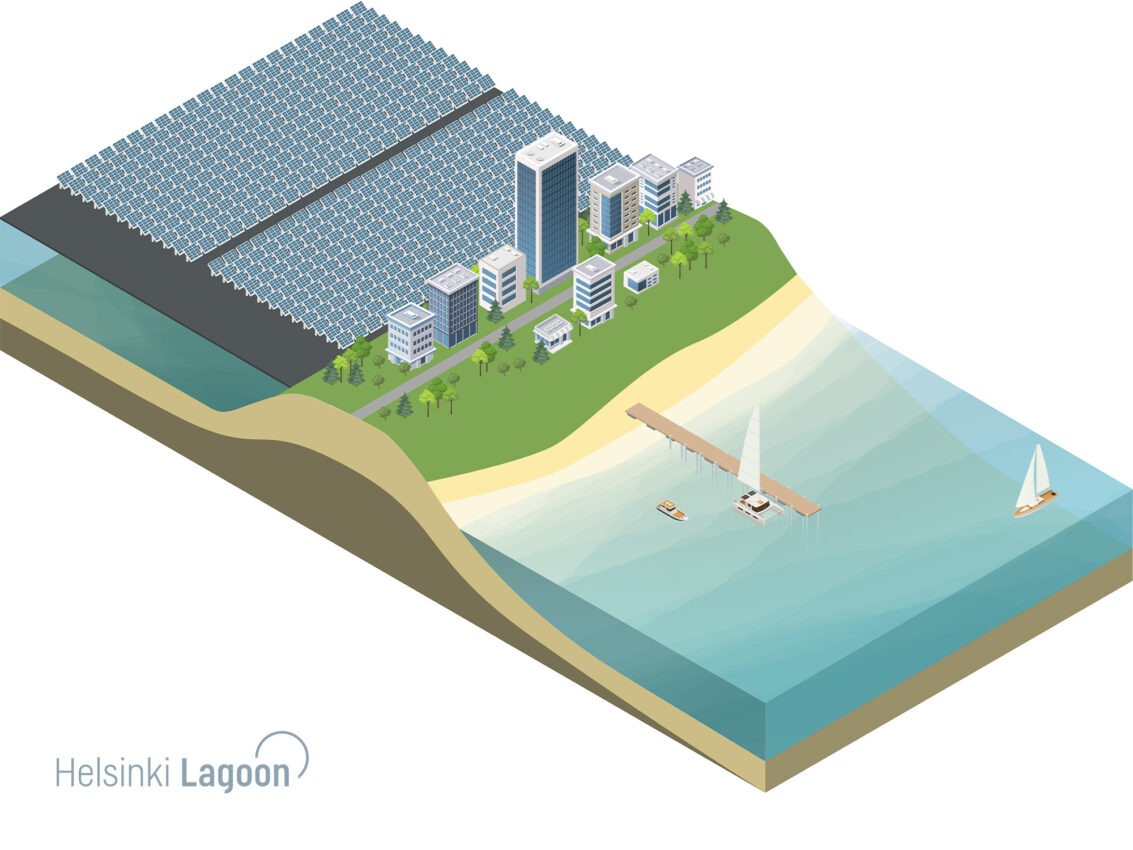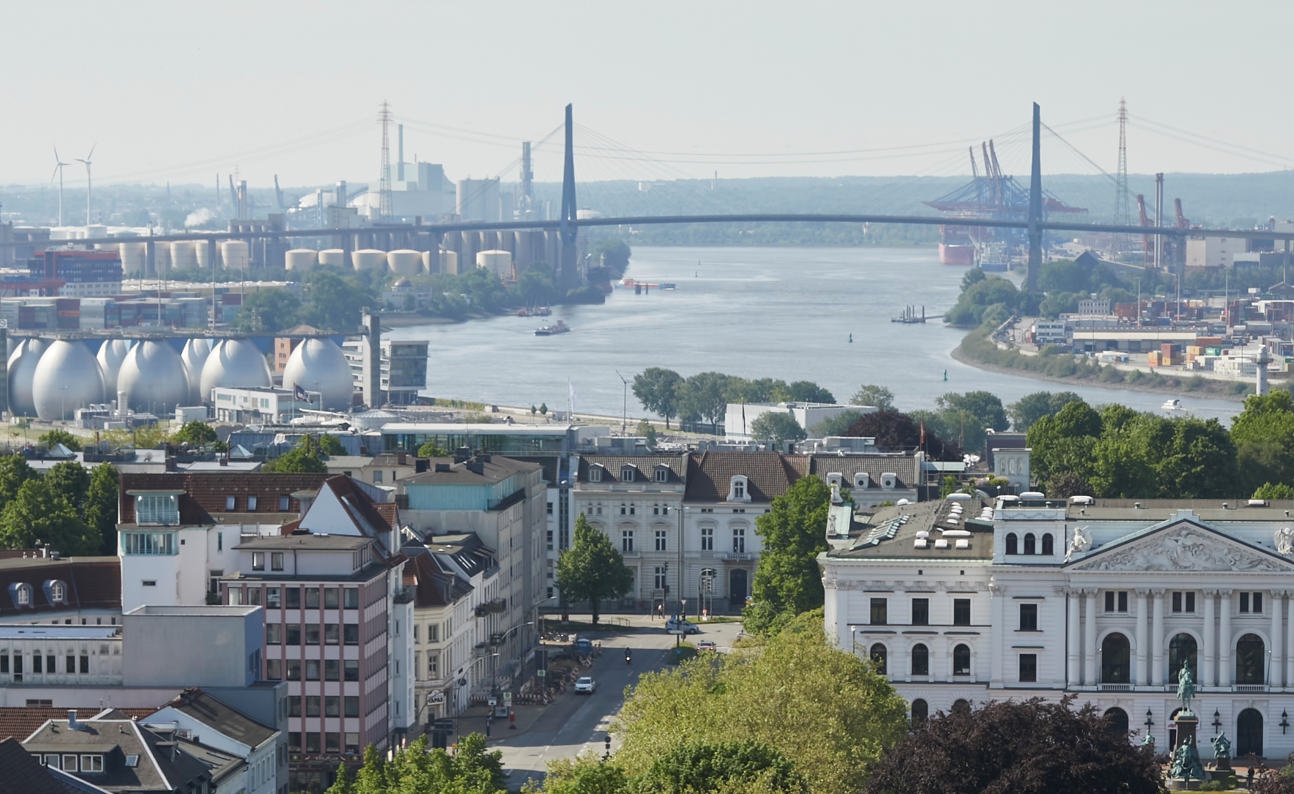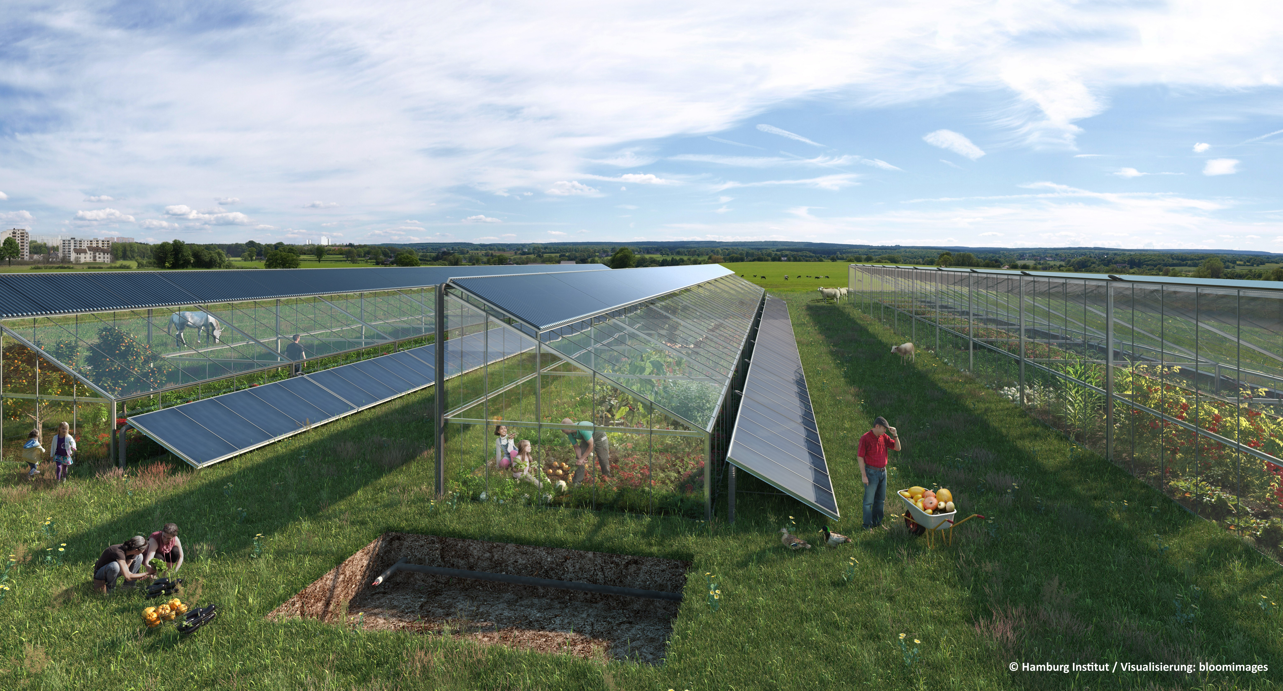
INVENTIVE SPIRIT @ Hamburg institut
Creating an island for the climate-friendly heat supply of a metropolis? Using ships as mobile storage units to flexibly transport industrial waste heat from the producer to the consumer? Just two of the many ideas brainstormed at the Hamburg Institut.
CREATIVE IDEAS WELCOME
The ten-year history of the Hamburg Institut is also a history of creative ideas. Thinking out of the box is a popular and welcome discipline at the Hamburg Institut, and we expressly encourage all our staff to do so. Giving free rein to ideas has often led to tangible and extremely practical solutions in the further process – some of which are now enshrined in law or in use as technology. Others are at the concept and implementation stage or are still patiently waiting for their big breakthrough.

Challenge accepted: Helsinki Lagoon
How can we decarbonise the heat supply in Helsinki while using as little biomass as possible? For the best answer to this question, the Finnish capital offered one million euros as part of a 2020 global competition.
We took up the challenge with an interdisciplinary team and entered the race with our “Helsinki Lagoon”. The jury gave us a lot of praise and a high score. And even if we did not emerge from the Helsinki Energy Challenge as millionaires in the end – we are still convinced of our idea of a multifunctional and technological heat island. Our concept is to make optimal use of the natural conditions of the location and to add a very special island to the countless islands around Helsinki.
The concept: heat storage for maximised flexibility
Helsinki Lagoon ist eine künstlich angelegte Insel wenige Kilometer vor der Stadt – mit einem riesigen saisonalen Meerwasser-Wärmespeicher Helsinki Lagoon is an artificial island a few kilometres off the city – with a huge seasonal seawater heat storage facility at its core. Solar thermal collectors cover the storage, which is installed on insulating floating plastic pontoons. Power-to-heat plants, among others, serve as peak generators on the mainland. In the future, other heat sources can be integrated into the storage facility, e.g. surplus heat from industry or deep geothermal sources.
Space for urban development
EA pure energy island, then? Helsinki Lagoon is more than that. The island offers space gain in a growing city. It also refinances part of the costs. There are no limits to the imagination: Leisure activities, beach houses, boats, offices with the best view, gastronomy, housing in the best location – the possibilities for urban development are manifold.

MOBILE STORAGE: HEAT TRANSPORT BY SHIP
Our idea of heat ships dates back to 2015 – but has lost none of its topicality. Even then, we saw the need for alternative ways to use industrial waste heat in the district heating supply. Our approach: The heat in the form of hot water is transported via mobile units instead of permanently installed pipelines – and on water instead of the road. For this purpose, old disused barges are converted and given a second life as mobile heat storage and transport units.
The Hamburg Institut holds a European patent for this invention.
During the development, of course, we had the Elbe right on our doorstep in mind: Around the port of Hamburg there are numerous heat providers as well as possible consumers and feed-in points for district heating networks. But the concept is interesting for basically all port cities with a district heating network.
The mobile ship storage system has several advantages: The flexible system can be adapted to dynamic heat sources or heat sinks, it is cheaper than a pipeline and, in contrast to culvert construction, no elaborate approval procedures are necessary. In addition, the good environmental balance is convincing.
You find the idea exciting and are interested in a pilot project? Dr. Matthias Sandrock is looking forward to hear from you.

SOLAR NEIGHBOURHOOD GREENHOUSES
A concept with many functions: The idea of solar neighbourhood greenhouses developed by the Hamburg Institut is more than just a way to pave the way for the further construction of solar thermal plants. The concept also aims to build social as well as ecological infrastructures: sustainable, low-cost and communal self-sufficiency with fresh food (“urban gardening”) is brought together with new technologies for heat generation from renewable energies.
The solar collectors are structurally linked to specially constructed greenhouses. In addition to the heat generated by solar thermal energy, the concept offers further added value by activating neighbourhoods for sustainable food production and strengthening social cohesion in urban areas. Greenhouse gas emissions are thus not only saved in energy production, but also in food production.
CONTACT
DID WE SPARK YOUR INTEREST?
Let’s meet!
Conferences, lectures, workshops, trade fairs - the team of Hamburg Institut is looking forward to meeting you in person and exchanging ideas with you. We will inform you here as soon as new dates are fixed.
